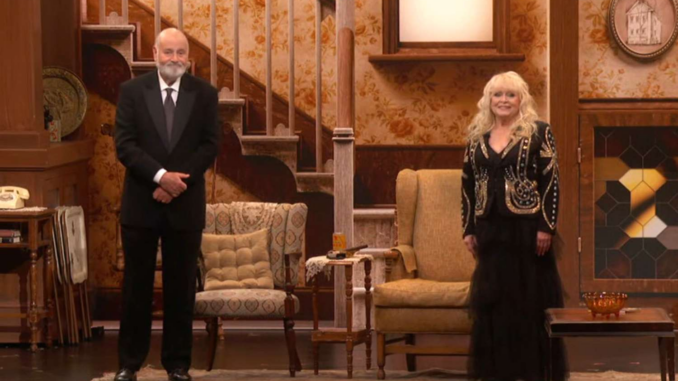
All in the Family is more than just a sitcom; it’s a cultural landmark that reshaped the television landscape. Premiering in 1971, the show introduced us to the Bunker family, a group of characters who tackled social issues with humor and heart. Through their trials and tribulations, the show not only entertained but also sparked conversations about race, gender, and family dynamics. In this article, we’ll take a closer look at the cast of All in the Family, exploring how they brought the Bunkers to life and changed television forever.
The Bunker Family: A Brief Overview
Who Are the Bunkers?
At the heart of All in the Family is the Bunker family, consisting of Archie, Edith, Gloria, and Mike. Each character represents different societal views and generational perspectives, making them relatable to a wide audience. Their interactions served as a lens through which viewers could examine their own beliefs and values.
Archie Bunker: The Patriarch
Archie Bunker, played by Carroll O’Connor, is the quintessential working-class man. His character is famous for his blunt opinions and traditional values, often leading to humorous yet thought-provoking clashes with his family. Archie’s unapologetic nature allows the show to tackle sensitive topics head-on.
Edith Bunker: The Heart of the Family
Edith, portrayed by Jean Stapleton, is Archie’s loving wife. She embodies kindness and compassion, often serving as the peacemaker in the family. Edith’s character brings warmth to the show, balancing Archie’s more abrasive personality.
Gloria Stivic: The Progressive Daughter
Gloria, played by Sally Struthers, represents the younger generation’s evolving views. As a wife and mother, she navigates the complexities of familial relationships while advocating for her beliefs. Gloria’s character highlights the clash between traditional and modern values.
Michael “Meathead” Stivic: The Liberal Son-in-Law
Rob Reiner’s character, Mike Stivic, often finds himself at odds with Archie. As a college-educated liberal, Mike challenges Archie’s outdated views, sparking debates that resonate with viewers. Their dynamic is central to the show’s exploration of political and social issues.
The Cultural Impact of the Bunkers
Addressing Social Issues
All in the Family was groundbreaking in its willingness to tackle contentious social issues, including racism, feminism, and class struggles. The Bunkers’ discussions often mirrored real-life debates, allowing audiences to engage with these topics in a relatable context.
Breaking Taboos
The show broke new ground by addressing subjects that were often considered off-limits for television. By bringing these issues into the living rooms of America, the Bunkers encouraged viewers to confront their own biases and beliefs.
Creating Dialogue
The Bunkers sparked conversations that extended beyond the screen. Families began discussing the issues portrayed in the show, making it a catalyst for social change. This dialogue was essential in fostering understanding and empathy among viewers.
The Legacy of the Cast
Carroll O’Connor’s Impact
Carroll O’Connor’s portrayal of Archie Bunker is iconic. His ability to blend humor with serious commentary made Archie a complex character. O’Connor received multiple Emmy Awards for his performance, solidifying his place in television history.
Jean Stapleton’s Endearing Performance
Jean Stapleton brought Edith to life with her warmth and charm. Her portrayal resonated with audiences, making Edith a beloved character. Stapleton’s performance earned her several Emmy Awards, reflecting her significant contribution to the show.
Rob Reiner: A New Generation of Comedy
Rob Reiner’s role as Mike Stivic introduced a new perspective to the series. His character challenged traditional views, representing the voice of a younger, more progressive generation. Reiner’s comedic timing and delivery added depth to the show’s discussions.
Sally Struthers’ Charisma
Sally Struthers’ portrayal of Gloria brought a fresh perspective to the show. Her character’s struggles with societal expectations resonated with many viewers. Struthers’ performance earned her two Emmy Awards, showcasing her talent and dedication.
The Show’s Lasting Influence
Inspiring Future Productions
The success of All in the Family paved the way for future sitcoms to address social issues. Shows like The Jeffersons and Maude, which featured characters from All in the Family, continued the legacy of tackling real-world problems through comedy.
A Template for Modern Sitcoms
The Bunkers’ dynamic set a template for character-driven sitcoms that followed. Their interactions and conflicts laid the groundwork for shows that prioritize character development and authentic storytelling.
Cultural References
The influence of the Bunkers extends beyond television; their phrases and dynamics have become part of American culture. References to All in the Family can be found in various media, reflecting its enduring relevance.
The Bunkers in Today’s Context
Relevance in Modern Society
The issues addressed by the Bunkers remain relevant today. Topics such as racism, gender equality, and political division continue to be at the forefront of societal discussions. The show serves as a reminder of the importance of open dialogue and understanding.
Lessons for Future Generations
The Bunkers taught audiences the value of empathy and the necessity of addressing uncomfortable topics. Their legacy encourages future generations to approach societal issues with humor and honesty.
Behind the Scenes: The Making of a Classic
Creative Visionaries
The brilliance of All in the Family can be attributed to its creative team, including producer Norman Lear. Lear’s vision for the show was to create a platform for discussing pressing issues, and he succeeded in making it both entertaining and enlightening.
Writing That Resonates
The writing team behind the show crafted sharp, witty dialogue that tackled serious subjects while keeping audiences engaged. Their ability to blend humor with poignant messages set a new standard for television writing.
Conclusion
The Bunker family from All in the Family is more than just a cast of characters; they are pioneers who changed the landscape of television. Through their humor, struggles, and triumphs, they sparked important conversations and challenged societal norms. As we look back at their impact, we celebrate the legacy of the Bunkers and their significant role in shaping the future of television.
